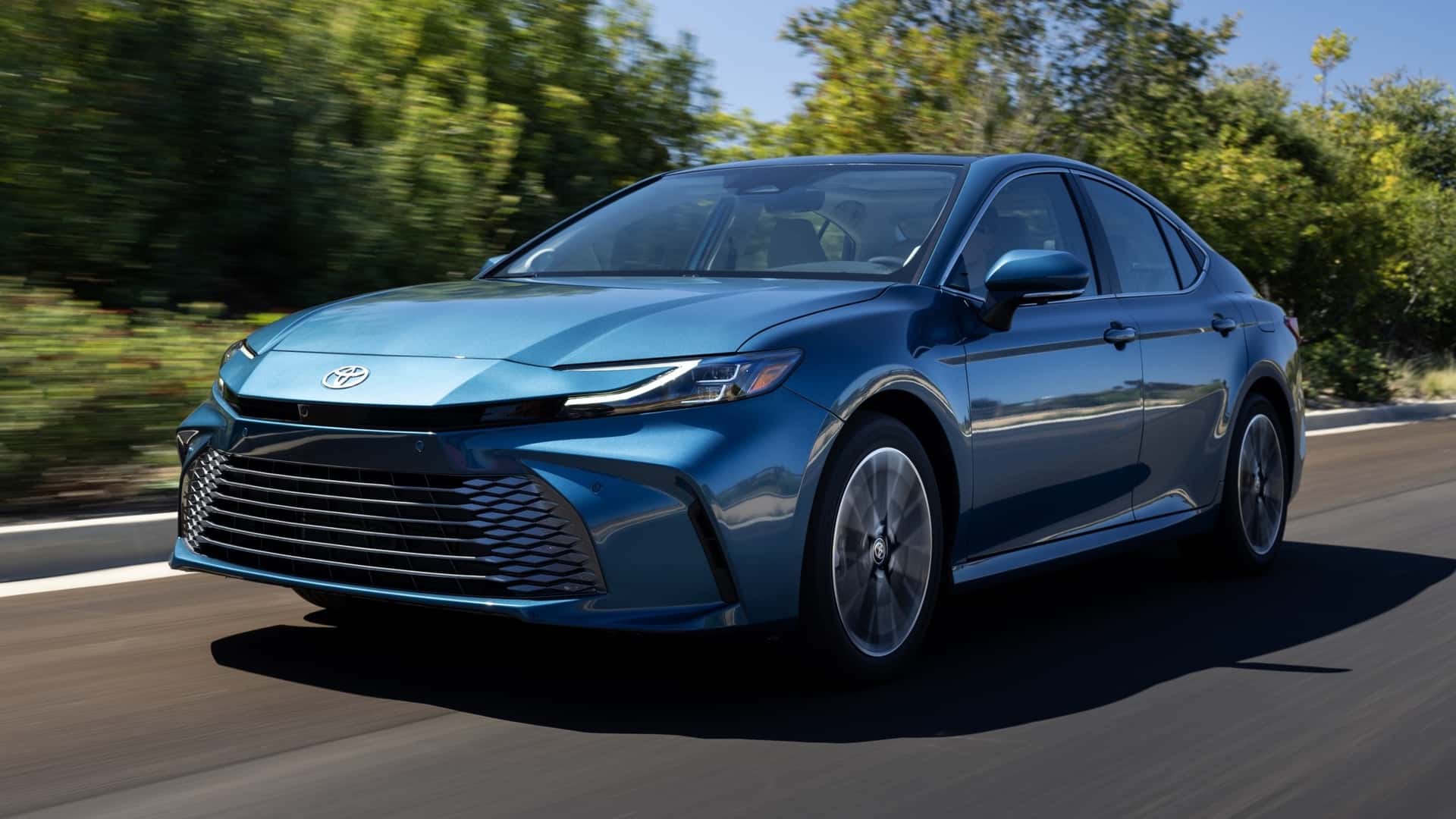Hybrid vehicles have become a popular choice for drivers seeking better fuel efficiency and lower emissions without sacrificing performance or comfort.
Over the years, the used hybrid market has expanded significantly, offering a range of options for buyers looking to reduce fuel costs and environmental impact.
However, not all used hybrids are created equal when it comes to resale value and long-term ownership satisfaction.
Some used hybrids maintain strong resale values due to their proven reliability, efficient powertrains, and continued consumer demand.
These models often feature well-established hybrid technology, strong brand reputations, and broad appeal, making them smart choices for buyers who want to minimize depreciation and enjoy dependable performance.
On the other hand, certain used hybrids tend to be avoided by buyers due to concerns over battery life, costly repairs, or less impressive fuel economy.
These vehicles may suffer from early technology flaws, limited parts availability, or lower consumer confidence, leading to weaker resale values and higher ownership costs.
In this article, we will explore five used hybrid vehicles that consistently hold their value and remain sought after on the market.
Then, we will examine five hybrids that buyers generally avoid, understanding the reasons behind their depreciation and lower desirability. This comprehensive look will help used hybrid buyers make informed decisions tailored to their needs and budgets.
Also Read: 5 Cars That Break Right After Warranty and 5 That Keep Going Forever
5 Used Hybrids With Great Resale
In the used car market, hybrids have carved out a significant niche, balancing fuel efficiency with the convenience and performance drivers expect. However, when it comes to resale value, not all used hybrids perform equally well.
Some models have proven to retain value exceptionally well, largely due to factors such as reliability, proven hybrid technology, and strong consumer demand.
These models often represent safer bets for buyers who want to minimize depreciation risk while still enjoying the benefits of hybrid powertrains.
Strong resale value in used hybrids is often driven by a combination of brand reputation, durability, and practical appeal.
Toyota, for instance, has long been a leader in hybrid technology, and vehicles like the Prius have become synonymous with efficient, trouble-free ownership.
Hybrid models that blend fuel economy with broad market appeal tend to maintain higher resale prices because they attract a wider audience and fewer doubts about maintenance or battery longevity.
Moreover, hybrids with straightforward technology and proven components tend to fare better on the resale market.
Buyers prefer vehicles that have demonstrated long-term reliability in real-world conditions rather than newer, less tested models that might raise concerns about battery replacement costs or complex repairs.
These hybrids also often benefit from strong parts availability and dealer support, factors that reassure used car buyers and contribute to better resale values.
Additionally, hybrids that offer a good mix of performance, comfort, and technology tend to appeal to more drivers, increasing demand and thus supporting stronger prices.
In the following section, we’ll explore five used hybrid models that have earned a reputation for retaining their value well, making them excellent choices for buyers who want to get the most from their investment.
1. Toyota Prius
The Toyota Prius is arguably the most iconic hybrid vehicle and has set the standard for hybrid resale value for over two decades.
It revolutionized the market when it first launched, becoming synonymous with fuel efficiency and eco-friendly driving. This reputation continues to serve it well in the used car market, where it consistently commands strong resale prices.
One major reason the Prius retains value so well is Toyota’s long-standing reliability and proven hybrid technology.
The Prius uses a well-tested hybrid system that combines a gasoline engine with electric motors to deliver impressive fuel economy without sacrificing dependability.
Over multiple generations, Toyota has refined this system to be robust and durable, reducing concerns about costly battery replacements that often plague other hybrid models.
Another factor behind its strong resale value is broad consumer recognition and demand. The Prius appeals not only to environmentally conscious drivers but also to those seeking practical, affordable transportation with low running costs. Its spacious interior and comfortable ride add to its appeal for daily commuting and family use.
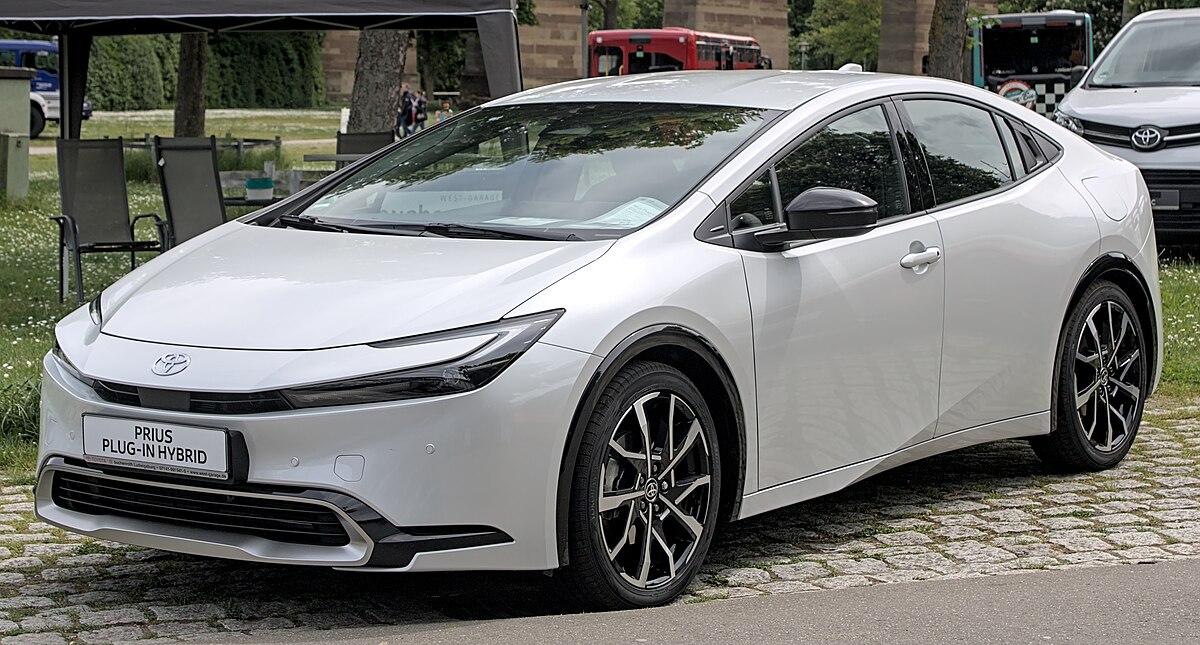
Toyota’s extensive dealer network also helps maintain the Prius’s value. Replacement parts are widely available and affordable, and qualified technicians are plentiful, which lowers long-term maintenance costs and reassures buyers.
Additionally, Toyota offers warranties on hybrid components that cover battery and system repairs for extended periods, further boosting buyer confidence.
Finally, the Prius benefits from its continuous evolution. Each new generation brings improvements in fuel efficiency, technology, and safety features, which keeps interest high even in the used market.
This balance of innovation, reliability, and strong brand loyalty means that used Prius models tend to depreciate more slowly than many competitors.
For buyers looking for a used hybrid that holds value while delivering proven efficiency and reliability, the Toyota Prius remains a top choice, offering peace of mind and solid long-term ownership economics.
2. Honda Insight
The Honda Insight is another standout in the used hybrid market, known for its balance of reliability, fuel efficiency, and practical design. As one of the earliest hybrid vehicles in the U.S., the Insight has developed a reputation that contributes significantly to its strong resale value.
What sets the Insight apart is Honda’s commitment to simplicity and engineering excellence. Unlike some hybrids that rely on complex systems, the Insight uses a lightweight design combined with a proven Integrated Motor Assist (IMA) system.
This approach has kept repair and maintenance costs relatively low, reassuring used car buyers who often worry about expensive hybrid battery replacements.
The Insight also shines in fuel economy, often matching or exceeding the efficiency of its closest competitors.
This high mpg rating remains attractive to buyers, especially as fuel prices fluctuate, driving consistent demand in the used market. Furthermore, the Insight’s handling and comfort make it a practical choice for urban and suburban driving.
Another reason for the Insight’s strong resale value is Honda’s overall brand strength. Honda is well-known for manufacturing vehicles that stand the test of time, with durable engines and transmissions.
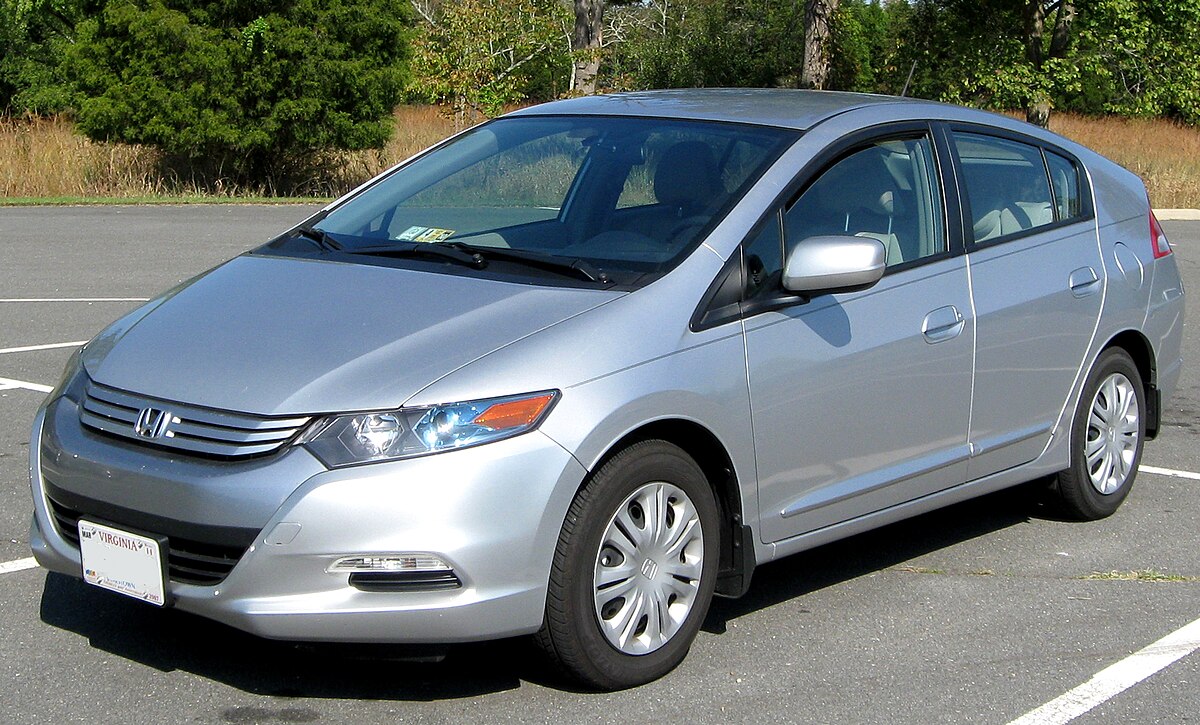
This reputation extends to the hybrid line, making the Insight a more trusted choice among used hybrid shoppers.
Moreover, the availability of parts and widespread dealership support lowers ownership risk. Buyers feel confident that they can service their vehicle easily without facing exorbitant repair bills.
While the Insight may not be as widely recognized as the Prius, it offers a compelling alternative for those seeking a reliable used hybrid with a solid resale history. Its combination of fuel efficiency, durability, and affordable maintenance makes the Honda Insight a practical and smart buy in the used hybrid market.
3. Lexus RX 450h
The Lexus RX 450h stands out as a luxury hybrid SUV that manages to combine refinement, performance, and impressive resale value.
As Lexus is Toyota’s luxury division, the RX 450h benefits from Toyota’s proven hybrid technology while adding a premium touch that appeals to a more upscale buyer demographic. This blend has helped it maintain strong resale prices in the used market.
One key factor behind the RX 450h’s resale strength is its reputation for reliability. Lexus vehicles, including the RX 450h, are known for excellent build quality and durability.
The hybrid powertrain in the RX 450h pairs a V6 engine with electric motors, delivering smooth acceleration and respectable fuel efficiency for its class. The hybrid system has been refined over multiple generations, minimizing concerns about battery longevity and expensive repairs.
The RX 450h also offers a compelling ownership experience, combining luxury features, comfortable seating, and advanced technology.
This makes it attractive not only to hybrid buyers but also to those looking for a versatile and upscale SUV with good fuel economy. Buyers appreciate the quieter, smoother ride the hybrid system provides compared to traditional gas-powered SUVs.
Another advantage contributing to the RX 450h’s value retention is Lexus’s strong warranty coverage, including hybrid components. This extended warranty coverage boosts buyer confidence in the used market and mitigates fears about costly repairs.
Finally, the RX 450h benefits from Lexus’s strong brand image, which has grown steadily in popularity and prestige. This desirability translates into higher demand for used models, pushing resale values upward.
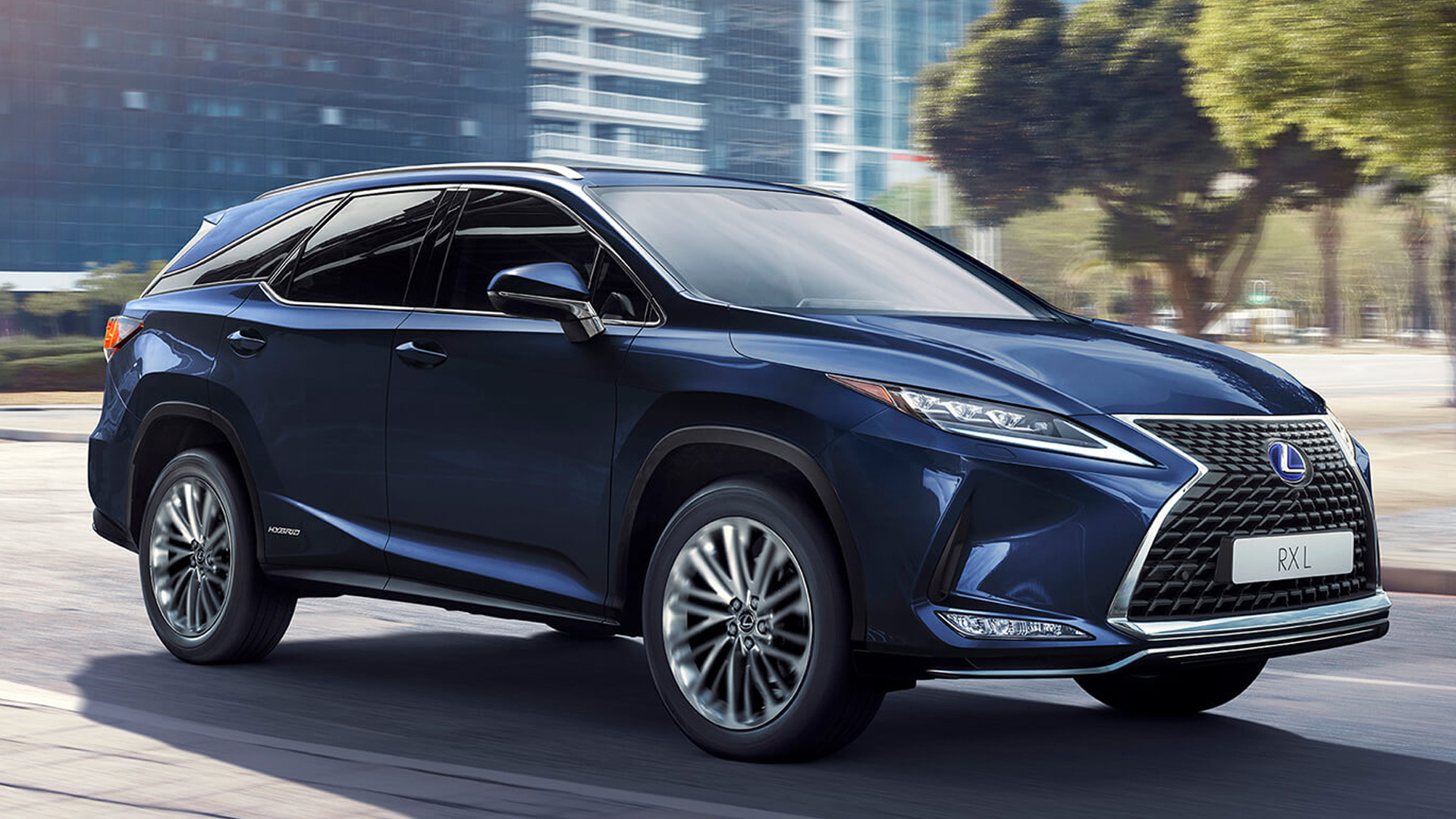
For buyers seeking a hybrid SUV that combines luxury, dependability, and strong resale value, the Lexus RX 450h remains a top contender. It offers a rare blend of sophistication and eco-friendliness that appeals to a wide range of buyers in the used vehicle market.
4. Toyota RAV4 Hybrid
The Toyota RAV4 Hybrid is one of the most popular compact SUVs on the market and a strong performer in terms of resale value, especially in the used vehicle segment.
Combining Toyota’s reliable hybrid technology with the practicality and versatility of a crossover, the RAV4 Hybrid appeals to a wide spectrum of buyers seeking efficiency without sacrificing space or capability.
A primary reason for the RAV4 Hybrid’s impressive resale retention is Toyota’s well-established reputation for reliability.
The hybrid system used in the RAV4 blends a gasoline engine with electric motors, delivering excellent fuel economy — often surpassing many competitors in the compact SUV class.
This powertrain is robust and has been fine-tuned over several years, which significantly reduces concerns about hybrid battery replacements or costly repairs.
The RAV4 Hybrid offers more than just fuel savings. It provides ample cargo space, comfortable seating for five, and a suite of advanced safety features like Toyota Safety Sense, which is highly valued in the resale market.
This combination of utility, comfort, and technology makes it a sensible choice for families, commuters, and outdoor enthusiasts alike.
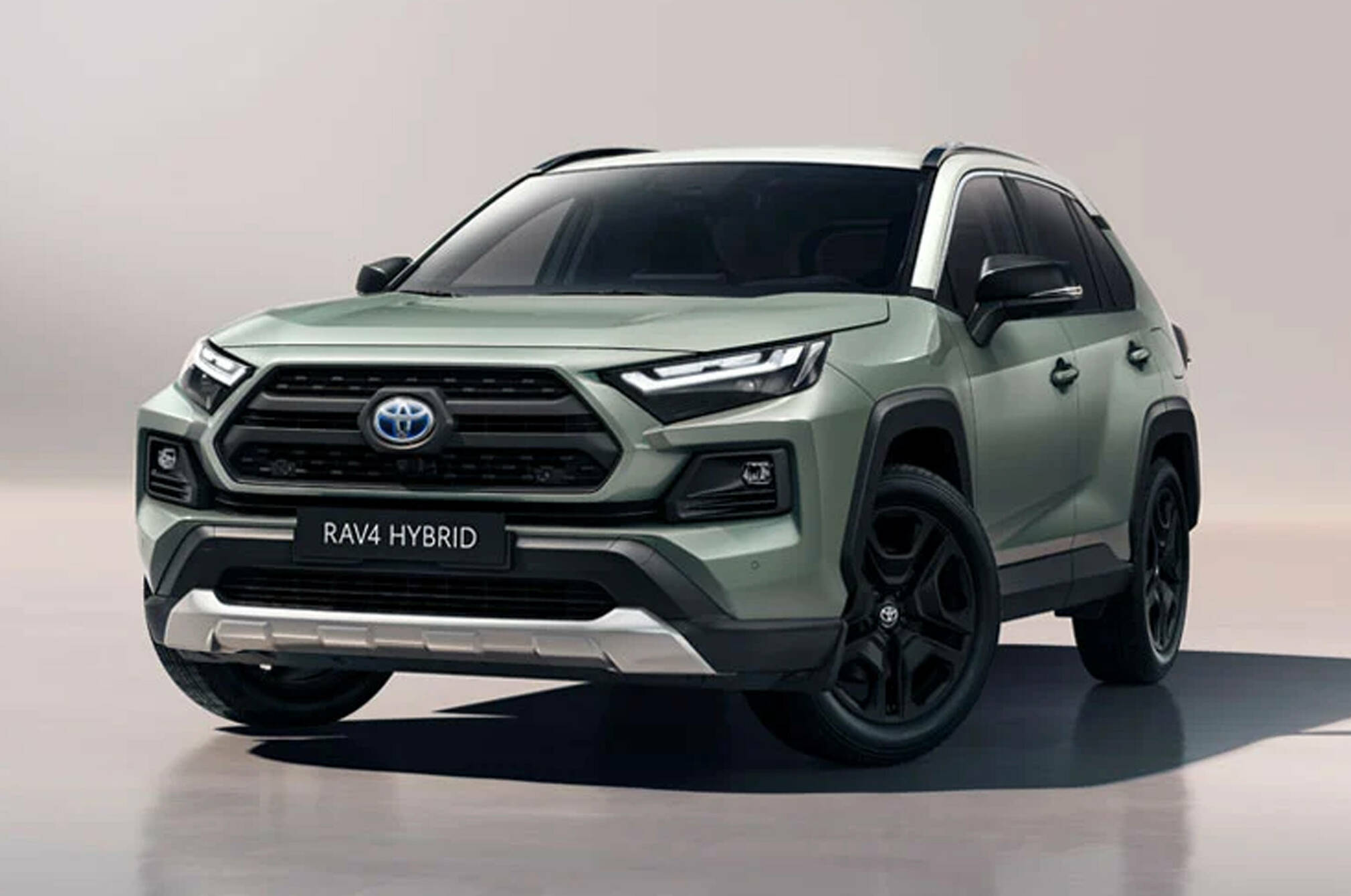
Toyota’s widespread dealer network and availability of parts also play an important role in maintaining the RAV4 Hybrid’s resale value. Buyers feel reassured knowing servicing won’t be a hassle or overly expensive.
The hybrid components come with extended warranties, providing an added layer of confidence in used vehicle purchases.
With increasing demand for fuel-efficient SUVs, the RAV4 Hybrid’s popularity continues to rise. It balances strong resale value with real-world versatility, making it a smart pick for anyone looking to invest in a used hybrid that holds its value and delivers on everyday driving needs.
5. Hyundai Ioniq Hybrid
The Hyundai Ioniq Hybrid has quickly become a favorite among used hybrid buyers thanks to its excellent fuel economy, modern styling, and competitive pricing.
Since its debut, the Ioniq has challenged established players like the Toyota Prius by offering an affordable yet efficient hybrid option with a strong value proposition in the used market.
One of the key reasons the Ioniq Hybrid maintains solid resale value is its efficient and reliable powertrain. Hyundai designed the hybrid system to maximize fuel savings without overly complex components, reducing the risk of expensive repairs or battery failures.
This focus on efficiency and simplicity helps keep long-term ownership costs low, an important factor for used buyers wary of hybrid maintenance.
The Ioniq also stands out for its comprehensive feature set and tech offerings, even in base models. Buyers appreciate its user-friendly infotainment system, standard safety features, and comfortable interior, which make it feel more upscale than its price suggests.
These qualities increase its appeal in the resale market, attracting a broad range of buyers looking for a practical yet enjoyable hybrid experience.
Another important factor supporting the Ioniq’s resale value is Hyundai’s strong warranty coverage, which includes an impressive 10-year/100,000-mile powertrain warranty.
This coverage is highly reassuring to used car buyers and helps differentiate the Ioniq from competitors whose warranties may be shorter or less comprehensive.
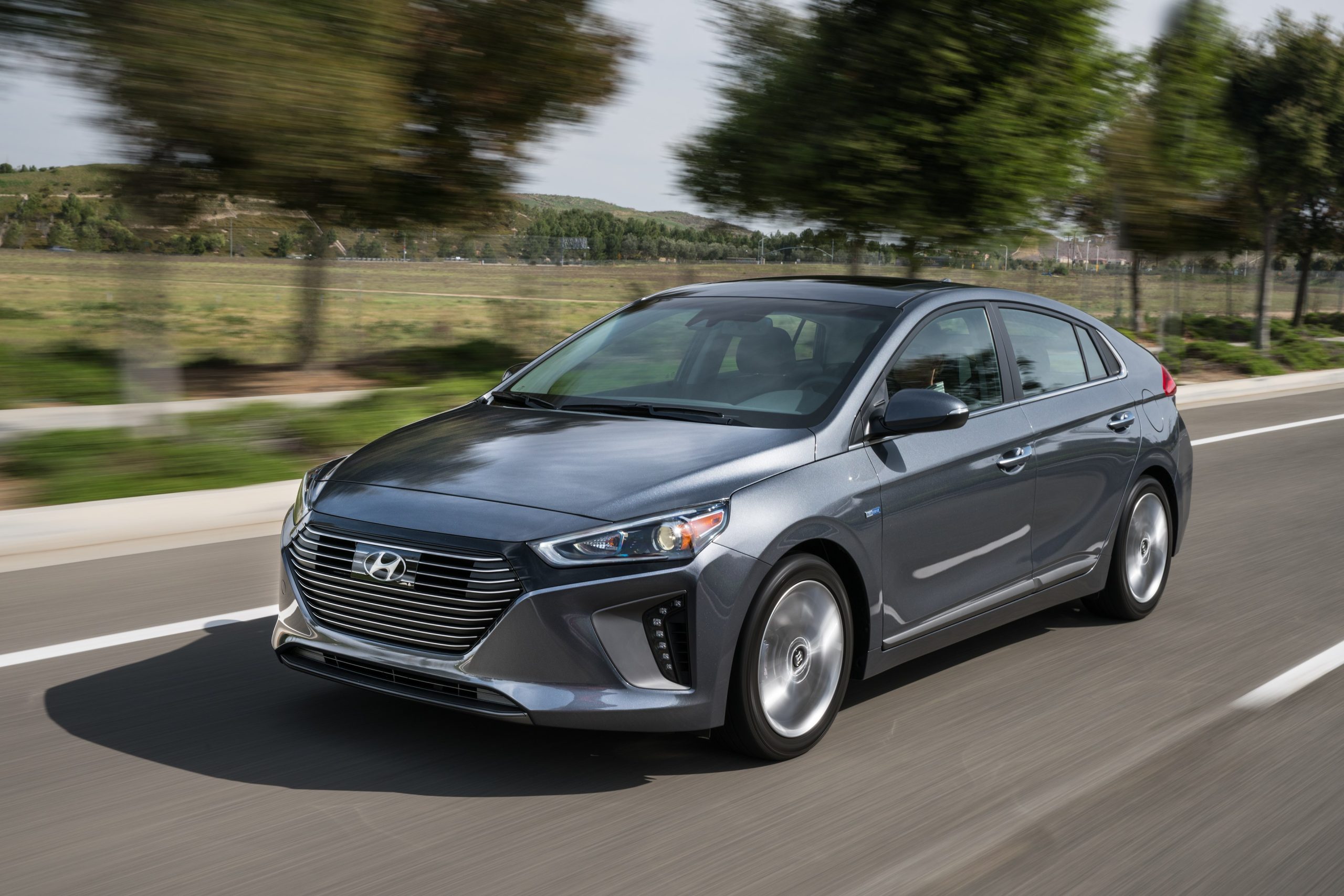
While the Hyundai Ioniq may not yet have the same name recognition as the Prius or RAV4 Hybrid, its combination of value, reliability, and efficiency has earned it a solid following.
For buyers seeking a used hybrid that offers excellent fuel economy, modern features, and dependable performance, the Hyundai Ioniq Hybrid is an outstanding choice that holds its value well over time.
5 Used Hybrids That Buyers Avoid
While hybrids have gained widespread popularity for their fuel efficiency and lower emissions, not all models have enjoyed equal success in the used car market.
Some used hybrids tend to be avoided by buyers due to concerns about reliability, high maintenance costs, or problematic battery life. These issues often lead to steep depreciation and weak resale values, making them less attractive options for second-hand buyers.
One major factor that drives buyers away from certain used hybrids is the risk of expensive battery replacements. Hybrid batteries are complex and costly to repair or replace once their lifespan ends.
Models with a history of premature battery failure or limited warranty coverage are often viewed as risky investments. This perception heavily influences resale values and can deter potential buyers.
Additionally, some hybrids suffer from early-generation technology issues, such as inefficient powertrains, poor fuel economy, or frequent mechanical problems. These issues can reduce a vehicle’s appeal compared to more refined competitors.
Limited dealer support and parts availability can further compound ownership challenges, especially for hybrids from brands less established in the hybrid space.
Another factor that causes buyers to shy away is a lack of overall reliability or costly repairs unrelated to the hybrid system. Complex electronics, transmission problems, or inferior build quality can add to the total cost of ownership and negatively impact resale value.
In this section, we will explore five used hybrids that have earned a reputation for disappointing buyers and losing value quickly.
By understanding the specific reasons behind their poor market reception, potential buyers can avoid costly mistakes and make more informed choices when shopping for a used hybrid.
1. Ford C-Max Hybrid
The Ford C-Max Hybrid, despite its appealing compact crossover design and competitive fuel economy, is often avoided in the used hybrid market due to concerns over reliability and expensive repairs.
Introduced as Ford’s answer to the growing hybrid crossover segment, the C-Max promised a comfortable ride and decent efficiency, but early and ongoing issues have hurt its reputation among used buyers.
One of the main reasons the C-Max Hybrid struggles in resale value is its problematic battery system. Many owners report premature battery failures, which can cost thousands to repair or replace.
Unlike some competitors with longer or more comprehensive hybrid battery warranties, the C-Max’s battery issues tend to occur outside warranty periods, leaving owners with costly out-of-pocket expenses.
In addition to battery troubles, the C-Max suffers from transmission reliability problems. The hybrid’s power-split transmission can experience failures or rough shifting, resulting in expensive repairs.
These mechanical problems have led to a general lack of confidence among used car buyers, contributing to lower demand and faster depreciation.
Furthermore, Ford’s hybrid technology in the C-Max isn’t as refined as that of Toyota or Honda. The system delivers good fuel economy but doesn’t quite match the smoothness or reliability of more established hybrids, which hurts its appeal.
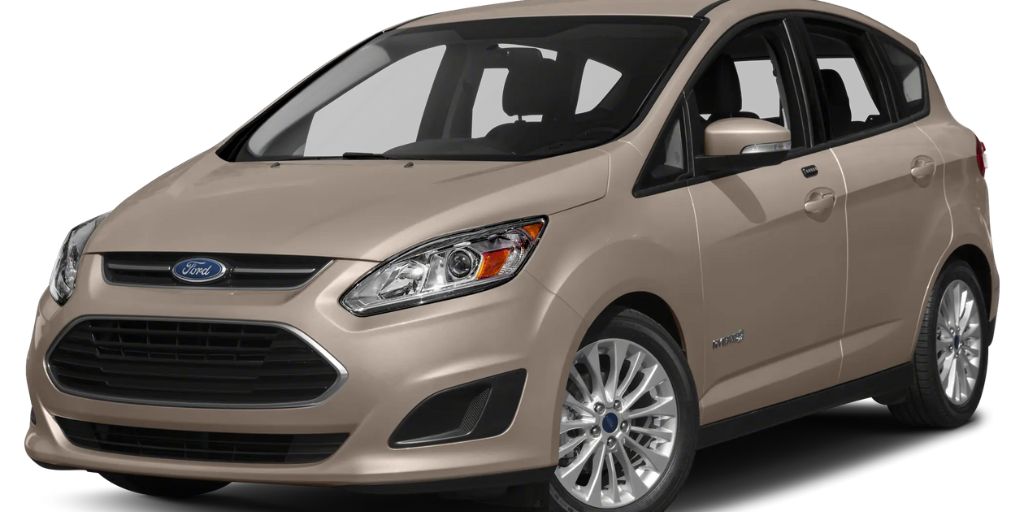
Maintenance and repair costs for the C-Max can also be higher than average due to limited dealer expertise and parts availability in some areas. Combined with mixed owner satisfaction ratings, these factors make the C-Max a less desirable option on the used hybrid market.
For buyers wary of expensive repairs and reliability headaches, the Ford C-Max Hybrid is generally considered one to avoid. Its depreciation and resale value reflect these concerns, making it less competitive compared to more trusted used hybrid models.
2. Chevrolet Volt
The Chevrolet Volt, while technically a plug-in hybrid rather than a traditional hybrid, is often approached cautiously by used car buyers, which impacts its resale value negatively.
The Volt boasts impressive electric-only range and strong fuel economy, but concerns over battery life and repair costs have made some buyers hesitant to invest in used models.
One significant issue buyers worry about is the high cost of replacing or repairing the Volt’s complex battery pack. Although Chevrolet provides warranties covering battery components, once out of warranty, repairs can be expensive.
Since the Volt’s battery pack is larger and more advanced than those in conventional hybrids, replacement costs can be especially daunting for used car owners.
Additionally, some owners report software glitches and occasional electric drive system failures, which require specialized diagnostics and repairs, often at dealer-level service centers. This complexity can add to maintenance costs and reduce the vehicle’s appeal in the used market.
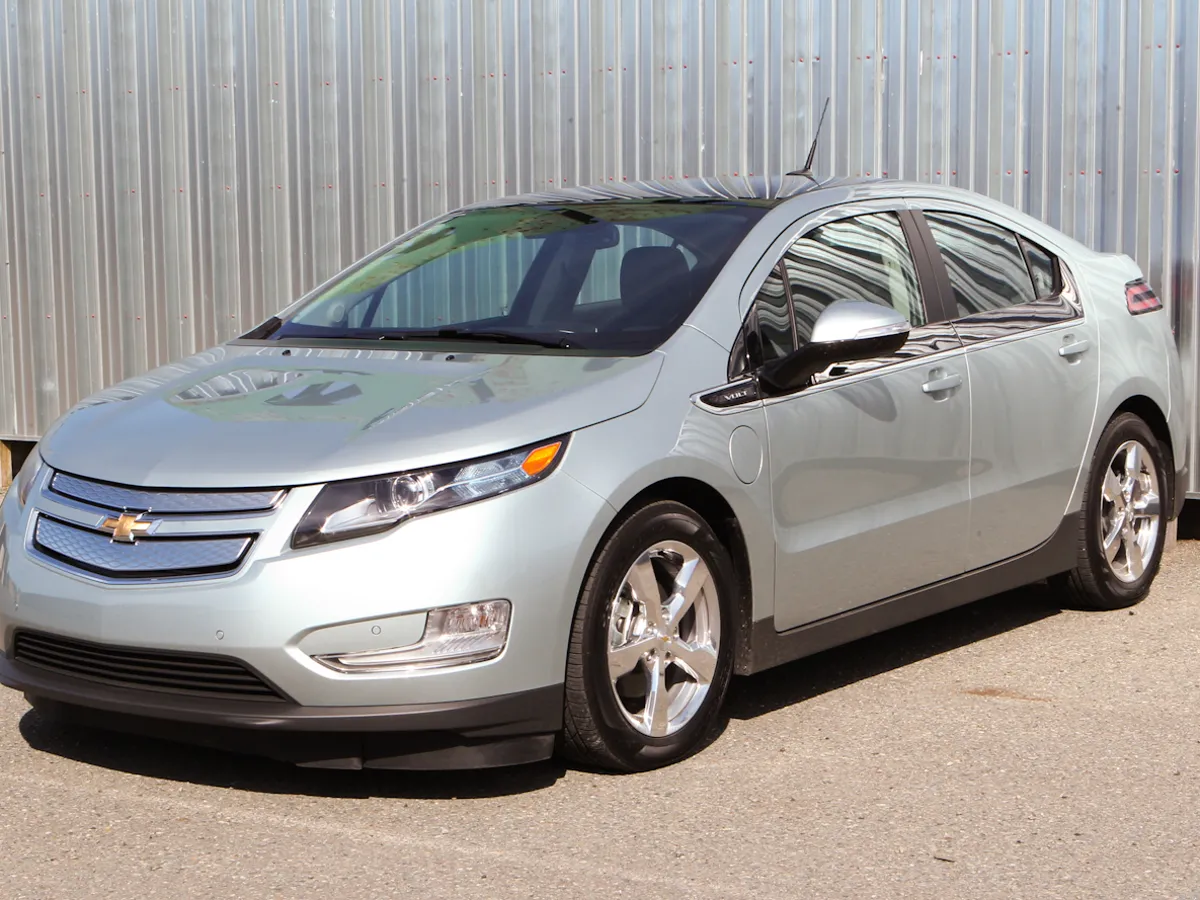
Another factor affecting the Volt’s resale is its niche market positioning. As a plug-in hybrid with a relatively limited all-electric range (compared to fully electric vehicles), it sometimes falls between categories, making it harder to appeal broadly to used car shoppers who are looking either for pure hybrids or full electric vehicles.
Despite its cutting-edge technology and overall positive reviews, the Volt’s resale values are often lower than more conventional hybrids due to these buyer hesitations. Furthermore, potential buyers often factor in concerns about battery degradation over time, especially for older models.
In summary, while the Chevrolet Volt offers a compelling blend of electric and gas power, the risks and potential expenses related to its battery system and complex technology have dampened enthusiasm among used car buyers, leading to weaker resale value compared to more traditional hybrids.
3. Toyota Camry Hybrid
While the Toyota Camry Hybrid is generally regarded as a reliable and popular hybrid sedan, some of its earlier model years have faced issues that make them less desirable in the used market.
Buyers often avoid these early versions due to concerns over premature battery wear, expensive repairs, and certain mechanical problems that affect resale value.
The main issue revolves around the hybrid battery pack. Early Camry Hybrids, especially those from the late 2000s and early 2010s, have reported battery degradation faster than expected.
Replacement batteries for these models can cost several thousand dollars, which discourages many used car buyers wary of unexpected expenses.
Additionally, some owners have experienced issues with the hybrid system’s power electronics, including inverter failures that are costly to repair.
While Toyota’s reputation for reliability is strong overall, these specific components have proven vulnerable in some older Camry Hybrid models, which lowers consumer confidence.
Another factor impacting resale is the relatively high maintenance costs for some components not related to the hybrid system, such as suspension wear and transmission issues reported in certain model years. These problems can add up, especially for buyers not thoroughly versed in hybrid maintenance.
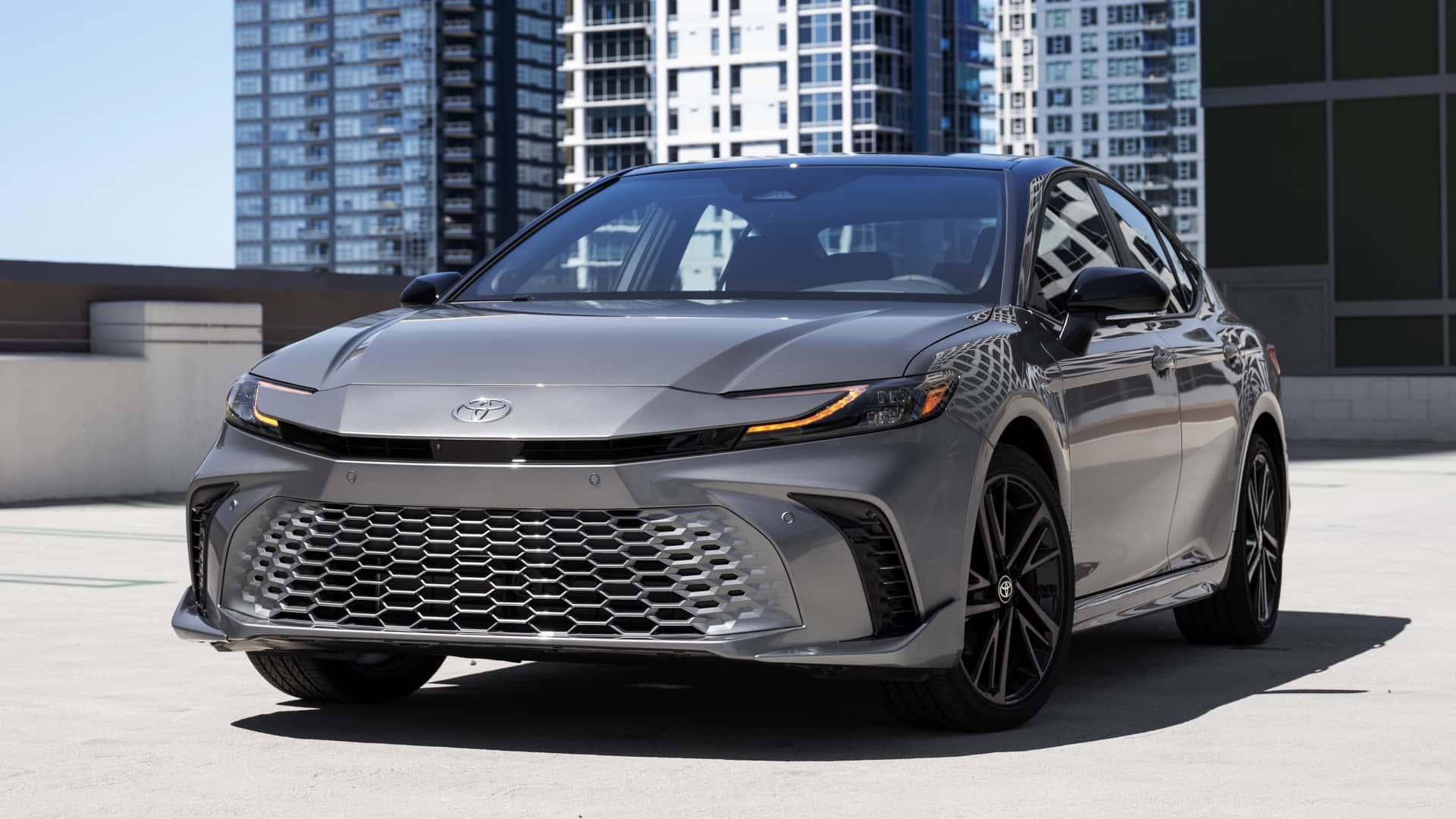
Despite these concerns, the Camry Hybrid still benefits from Toyota’s broad dealership network and good availability of parts, which can make repairs easier compared to less common hybrids.
However, the early model’s mixed track record has led to a cautious approach by buyers, translating into lower resale values than newer, more reliable Camry Hybrid generations.
For those seeking a used Camry Hybrid, it’s advisable to prioritize later models with updated hybrid technology and better battery longevity to avoid costly repairs and enjoy a better resale experience.
4. Nissan Altima Hybrid
The Nissan Altima Hybrid, produced primarily between 2007 and 2013, is another model often avoided by used hybrid buyers. Despite its appeal as a midsize sedan with hybrid technology, it has struggled with reliability and resale value compared to competitors.
One of the primary issues with the Altima Hybrid lies in its complex and less-proven hybrid system.
Unlike Toyota and Honda hybrids that use well-established systems, Nissan’s hybrid technology in the Altima had early-generation problems, including battery degradation and electronic control failures.
Many owners have reported battery replacement needs well before the expected lifespan, which is an expensive and time-consuming repair.
Additionally, the Altima Hybrid has faced problems with its continuously variable transmission (CVT), which can exhibit premature wear and lead to costly transmission repairs or replacements. Transmission issues combined with hybrid system concerns have eroded buyer confidence.
The limited availability of parts and fewer specialized service centers for Nissan hybrids add to maintenance challenges. Owners often face longer repair times and higher costs, discouraging potential used buyers.
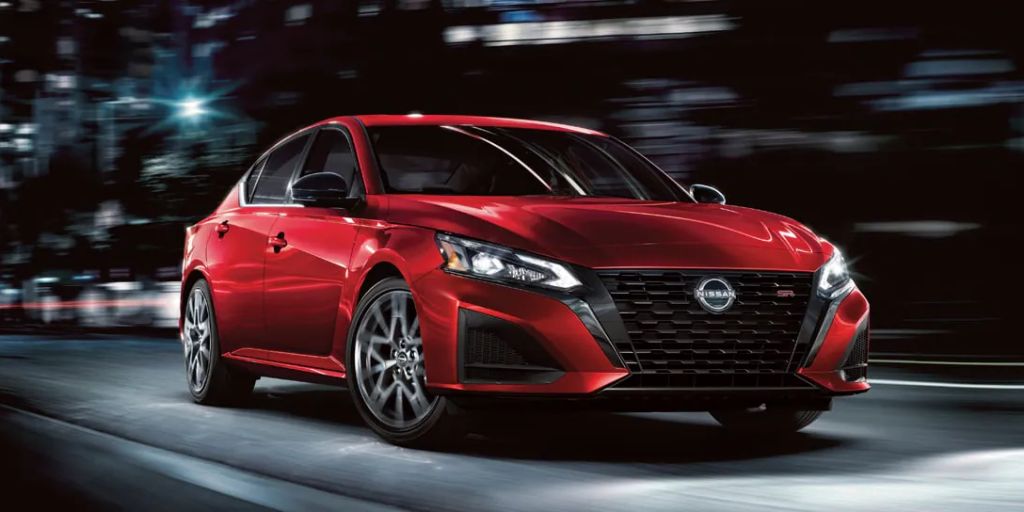
Resale values for the Altima Hybrid tend to be significantly lower than its non-hybrid counterpart and competitors with more proven hybrid technology. This depreciation reflects the market’s concerns about long-term reliability and maintenance costs.
Furthermore, the Altima Hybrid’s fuel economy, while decent, often fell short of the class leaders, making it less appealing to fuel-conscious buyers. This performance gap has also contributed to decreased demand on the used market.
In summary, while the Nissan Altima Hybrid offered an eco-friendly alternative in its day, the combination of hybrid system issues, transmission problems, and limited support has led many buyers to avoid it on the used market, resulting in weaker resale values.
5. Honda Insight (first generation, 2000–2006)
The first-generation Honda Insight, introduced in the early 2000s as one of the pioneering hybrid vehicles, is often avoided by used car buyers despite its historical significance.
While it was groundbreaking for its time, the early Insight’s technology and design have not aged well in the resale market, leading to weak demand and lower resale values.
One major factor that discourages buyers is the Insight’s outdated hybrid system. The first-gen Insight used an integrated motor assist system that, although innovative, lacks the refinement and efficiency of modern hybrids.
Its small battery pack and limited electric assist result in less impressive fuel economy by today’s standards, making it less appealing to buyers seeking reliable, efficient hybrids.
Battery longevity is another concern. Replacement batteries for the first-generation Insight are harder to find and costly, as Honda no longer produces these specific components, forcing owners to seek expensive aftermarket solutions. This scarcity and expense contribute to buyer hesitation in the used market.
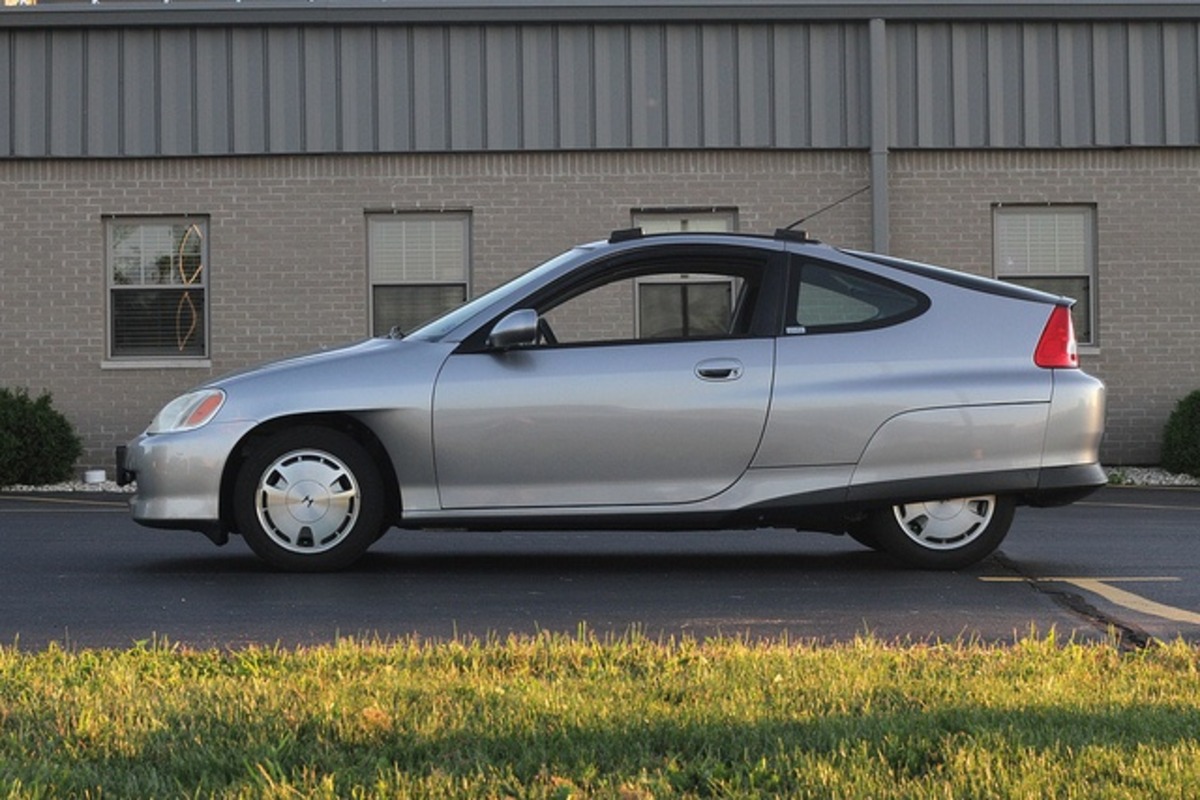
Additionally, the Insight’s unique two-seater design and compact size limit its practicality for most buyers, further narrowing its appeal. Its minimalist interior and dated features also contrast sharply with modern hybrids packed with technology and comfort amenities, making it a harder sell.
From a maintenance perspective, while Honda generally offers reliable vehicles, the first-gen Insight’s hybrid components and aging electronics can present challenges and higher repair costs as parts become scarce.
Because of these factors, the first-generation Insight tends to depreciate more steeply than other used hybrids, with many buyers preferring newer models that offer better performance, reliability, and features.
In conclusion, although the first-gen Honda Insight played a crucial role in hybrid history, it is generally avoided by used car buyers today due to outdated technology, limited practicality, and costly maintenance — all of which contribute to its weak resale value.
The used hybrid market presents a varied landscape where some models maintain strong resale value and buyer demand, while others struggle with depreciation and buyer avoidance.
Understanding the factors behind these trends is crucial for consumers seeking to maximize value and minimize risk when purchasing a used hybrid vehicle.
The hybrids with great resale value—like the Toyota Prius, Lexus RX 450h, Honda Accord Hybrid, Hyundai Ioniq Hybrid, and Ford Escape Hybrid—combine proven reliability, efficient powertrains, and strong brand reputations.
These models benefit from extensive hybrid experience by manufacturers, solid battery warranties, and consistent performance, which build buyer confidence. Their broad appeal and low maintenance costs keep demand high and depreciation comparatively low.
Additionally, many offer a balance of fuel economy, comfort, and modern features, making them attractive choices for a wide range of used car buyers.
Conversely, the hybrids buyers tend to avoid—including the Ford C-Max Hybrid, Chevrolet Volt, early Toyota Camry Hybrids, Nissan Altima Hybrid, and first-generation Honda Insight—face challenges such as battery longevity issues, expensive repairs, complex or early-generation hybrid systems, and limited practicality.
These factors create uncertainty about long-term ownership costs and reliability, leading to rapid depreciation and weaker resale values. Limited dealer support and parts availability further exacerbate these concerns, pushing buyers away and shrinking the market for these vehicles.
For prospective buyers, this contrast underscores the importance of researching hybrid models thoroughly before purchase. Evaluating warranty coverage, battery health, maintenance history, and overall reliability ratings can help avoid costly surprises.
Selecting hybrids from manufacturers with a strong track record and updated technology usually results in better ownership satisfaction and retained value.
Ultimately, hybrids remain an excellent choice for fuel efficiency and lower emissions. However, choosing the right used hybrid model is key to balancing upfront cost savings with long-term reliability and resale potential.
By focusing on vehicles with proven dependability and strong resale performance, buyers can enjoy the benefits of hybrid technology while protecting their investment.
Also Read: 5 Cars That Throw Random Check Engine Codes And 5 That Are Code-Clean

